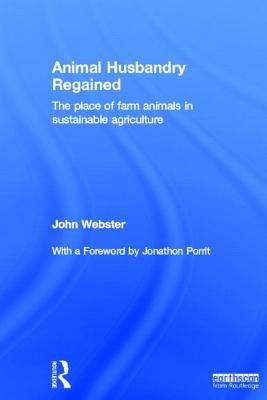
- We will send in 10–14 business days.
- Author: John Webster
- Publisher: Routledge
- ISBN-10: 1849714207
- ISBN-13: 9781849714204
- Format: 15.5 x 23.6 x 2 cm, kieti viršeliai
- Language: English
- SAVE -10% with code: EXTRA
Reviews
Description
The farming of animals for meat and milk confronts a stark dilemma. While world demand from a growing and more affluent human population is increasing rapidly, there are strong counter-arguments that we should eat less meat and pay more attention to environmental protection, animal welfare and human health and well-being.
The aim of this book is to identify and explain the causes and contributors to current problems in animal husbandry, especially those related to 'factory farming', and advance arguments that may contribute to its successful re-orientation. Husbandry is considered in its broadest sense, namely the productive and sustainable use of the land for the good of all (plants, humans and other animals). The first part of the book outlines principles and arguments necessary to engage with current problems: depletion of natural resources and destruction of environment, animal welfare, food and health, fair trade and sharing resources. These arguments are illustrated by examples and sufficient evidence to justify the argument without obscuring the message. The second part presents a series of constructive proposals for change and development in animal husbandry, both in the developed world and subsistence agriculture. These include more integrated crop and livestock farming systems, the ethics of animal welfare and environmental management, and the evolution of a new social contract whereby the rights of the people to a fair share of good, safe food and a green and pleasant land are matched by a shared responsibility to preserve these things.EXTRA 10 % discount with code: EXTRA
The promotion ends in 23d.16:00:04
The discount code is valid when purchasing from 10 €. Discounts do not stack.
- Author: John Webster
- Publisher: Routledge
- ISBN-10: 1849714207
- ISBN-13: 9781849714204
- Format: 15.5 x 23.6 x 2 cm, kieti viršeliai
- Language: English English
The farming of animals for meat and milk confronts a stark dilemma. While world demand from a growing and more affluent human population is increasing rapidly, there are strong counter-arguments that we should eat less meat and pay more attention to environmental protection, animal welfare and human health and well-being.
The aim of this book is to identify and explain the causes and contributors to current problems in animal husbandry, especially those related to 'factory farming', and advance arguments that may contribute to its successful re-orientation. Husbandry is considered in its broadest sense, namely the productive and sustainable use of the land for the good of all (plants, humans and other animals). The first part of the book outlines principles and arguments necessary to engage with current problems: depletion of natural resources and destruction of environment, animal welfare, food and health, fair trade and sharing resources. These arguments are illustrated by examples and sufficient evidence to justify the argument without obscuring the message. The second part presents a series of constructive proposals for change and development in animal husbandry, both in the developed world and subsistence agriculture. These include more integrated crop and livestock farming systems, the ethics of animal welfare and environmental management, and the evolution of a new social contract whereby the rights of the people to a fair share of good, safe food and a green and pleasant land are matched by a shared responsibility to preserve these things.

Reviews